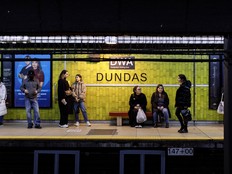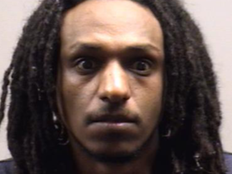Jerry Agar
LATEST STORIES BY JERRY AGAR
AGAR: Numbers mean nothing when it comes to woke agendas
Yet another renaming will take place in Toronto, supposedly to protect the safety and feelings of minorities. Did anyone ask the minorities if that is what they want? The latest is the plan to rename Dundas TTC station, which follows the renaming of Yonge-Dundas Square to the slave nation-inspired word Sankofa. Get the cruel — and one would think counter-productive — irony? When that happened, a poll by Liaison Strategies showed 72% of respondents said they disapproved of the renaming, 16% were in favour and 12% were not sure. With only 16% for renaming, that has to include a lot of non-white people against it, as 57% of the Toronto area are visible minorities. Collectively, minorities are the majority. However, activist councillors who know better than the public and minorities went ahead anyway. On any such issues, does anyone stop to ask the people they are supposedly “saving?” Finally, yes. A new issue that has been racialized in Canada is that of drug legalization, with the claim that drug laws are racist. City Journal ran an article titled, The Left Thinks Drug Criminalization Is Racist. Minorities Disagree,” with the subhead: A Canadian poll finds that racial minorities don’t believe drug enforcement is bigoted. Adam Zivo, founder of the Centre for Responsible Drug Policy, in partnership with the Macdonald-Laurier Institute, contracted Mainstreet Research to ask over 12,000 British Columbians: “Do you agree or disagree that criminalizing drugs is racist?” Their finding? “The results undermine progressives’ assumptions. Only 26% of non-white respondents agreed (either strongly or weakly) that drug criminalization is racist, while over twice as many (56%) disagreed. The share of non-white respondents who strongly disagreed was three times larger than the share that strongly agreed (43.2% versus 14.3%). These results are fairly conclusive for this jurisdiction, given the poll’s sample size of 2,233 non-white respondents and a margin of error of 2%.” Only 20% of Indigenous respondents thought that drug criminalization is racist. Zivo concludes, “Legalization proponents and their progressive allies take pride in being ‘anti-racist.’ Our polling, however, suggests that they are not listening to the communities they profess to care about.” When the Toronto District School Board, the largest in the country, decided to remove police Student Resource Officers from the schools, at the loud insistence of activists from groups like Black Lives Matter, the TDSB’s research showed that only 10% of students were uncomfortable with the program and the officers. The program was not for hard policing of schools, it was for students to have someone to reach out to and for students who may grow up suspicious of the police to discover that “Officer Nancy” is a good, caring person. So, in the face of a good idea supported by students, parents and the public, the TDSB caved to activists and did the wrong thing by scrapping the program. Yet, the next time an issue arises where a government entity sets out to make life better for minorities, will the opinions and feelings of the majority of minorities, as opposed to activists, matter? No. Many politicians are the Great White Mothers and Fathers who know what’s best for them.









